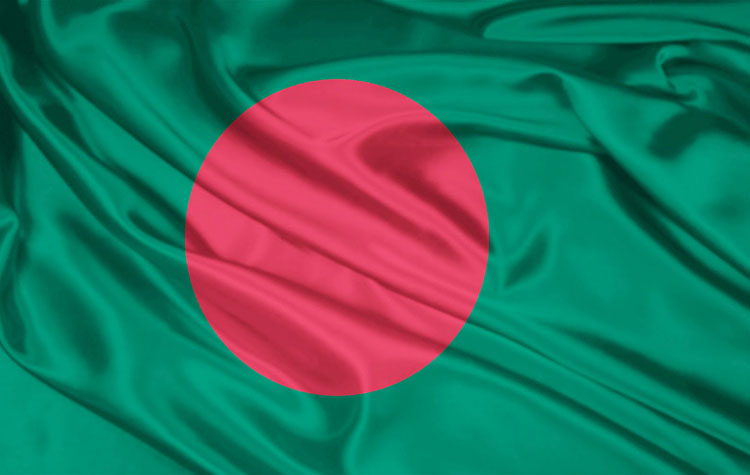(March 5, 2021) – The Bangladeshi authorities must end their escalating crackdown on human rights, and respect and protect people’s rights to freedom of expression and peaceful assembly in Bangladesh to curb protesters demanding justice for writer Mushtaq Ahmed’s death in prison on 25 February, the nine undersigned human rights organizations said in a joint statement today.
Ahmed, 53, was a Bangladeshi writer held in pre-trial arbitrary detention for nine months under the draconian Digital Security Act of 2018 (“DSA”), following his arrest in May 2020 for Facebook posts and social media communications that were deemed critical of the government. The death in prison of Mushtaq Ahmed raises serious concerns about the protection of fundamental freedoms, including the rights to life, privacy, and the right to liberty.
Ahmed Kabir Kishore, 45, a prominent Bangladeshi cartoonist was also arrested in the same case as Mushtaq. After ten months in prison, on March 3 he was granted bail and was released on March 4 but the charges against him have not been dropped. Further, there are strong reasons to believe that Ahmed Kabir Kishore has been tortured while in custody of the Rapid Action Battalion (RAB), a Bangladesh paramilitary force, which has been accused of serious human rights violations in the past. In addition to no longer being able to hear on his right ear, he also has difficulty walking due to pain in his left knee and ankle. Furthermore, Ahmed Kabir Kishore is diabetic and has been suffering from severely high levels of blood sugar during his detention. Without urgent and proper medical attention, he is at risk of visual impairment due to his deteriorating health.
In light of these developments, the organizations call on Bangladeshi authorities to conduct prompt, thorough, impartial, and transparent investigations into the death in prison of writer Mushtaq Ahmed and the allegations of torture against cartoonist Ahmed Kabir Kishore. Perpetrators must be identified and brought to justice.
Authorities must also unconditionally and permanently release Ahmed Kabir Kishore, end the practice of arbitrary, pre-trial detention of people solely for the peaceful exercise of their right to freedom of expression.
Mushtaq Ahmed and Ahmed Kabir Kishore are among hundreds of victims whom the Bangladeshi authorities have held in detention under the DSA. Nine others have been accused in the same case for publishing “false information” and “propaganda against the liberation war, the spirit of liberation war, father of the nation”, which could “deteriorate law and order” by “supporting or organizing crime” under sections 21, 25, 31 and 35 respectively of the DSA. If convicted, they could face up to 10 years in prison and fines of up to 10 million Bangladeshi takas (equivalent to USD 115,891). These vaguely defined provisions of the law are incompatible with international human rights law and are being used to criminalize freedom of expression. The organization urge the Bangladeshi government to repeal the DSA – under which both Ahmed and Kishore were charged. All digital and cybersecurity laws must conform to international human rights law including the International Covenant on Civil and Political Rights.
The undersigned organizations also expressed concern over reports of police violence on peaceful protestors, including activists of opposition political parties, who took to the streets to demand justice for Mushtaq Ahmed’s death in prison. The violent crackdown by police has left hundreds of protesters injured, dozens detained, and several others accused of charges, including attempted murder. Bangladeshi authorities must respect and protect the people’s rights, including the rights to freedom of expression, peaceful assembly, and liberty. Authorities must drop all charges against the peaceful protesters, and immediately and unconditionally release those detained.
To protect and respect the human rights, individual states should urge the Bangladeshi authorities to address the allegations of grave human rights violations being committed in Bangladesh. The international community should impose targeted sanctions on those responsible for grave human rights violations in Bangladesh. Given the concerning record of human rights abuses committed by Bangladesh’s security forces and law-enforcement agencies, the UN should review their participation in UN Peacekeeping Operations.
This statement is endorsed by the Asian Federation Against Involuntary Disappearances (AFAD), Asian Forum for Human Rights and Development (FORUM-ASIA), Asian Human Rights Commission (AHRC), Asian Network for Fair Election (ANFREL), CIVICUS: World Alliance for Citizen Participation, Eleos Justice – Monash University, FIDH: International Federation for Human Rights (within the framework of the Observatory for the Protection of Human Rights Defenders), OMCT: World Organisation Against Torture, (within the framework of the Observatory for the Protection of Human Rights Defenders), Robert F. Kennedy Human Rights.
– END –
For a PDF version of this statement, please click here.
For further information, please contact:
- For the Asian Federation Against Involuntary Disappearances (AFAD), Nilda L. Sevilla; +63 922 737 6877 (Mobile); Email: [email protected]
- For Asian Forum for Human Rights and Development (FORUM-ASIA), in Bangkok, Melissa Ananthraj, Communication and Media Programme, [email protected].
- For Asian Human Rights Commission (AHRC), in Hong Kong, Mohammad Ashrafuzzaman (Bangla & English): +852 6073 2807 (Mobile); Email: [email protected]
- Asian Network for Fair Election (ANFREL), Chandanie Watawala, Email: [email protected]
- For CIVICUS: World Alliance for Citizen Participation, Josef Benedict, Asia Pacific Researcher (English): Email: [email protected]
- For Eleos Justice – Monash University, Mai Sato (English): Email: [email protected]
- FIDH, within the framework of the Observatory for the Protection of Human Rights Defenders
- OMCT (World Organisation Against Torture), within the framework of the Observatory for the Protection of Human Rights Defenders
- For Robert F. Kennedy Human Rights, in Washington, DC, Minhee Cho, Media Relations Associate (English):[email protected]




